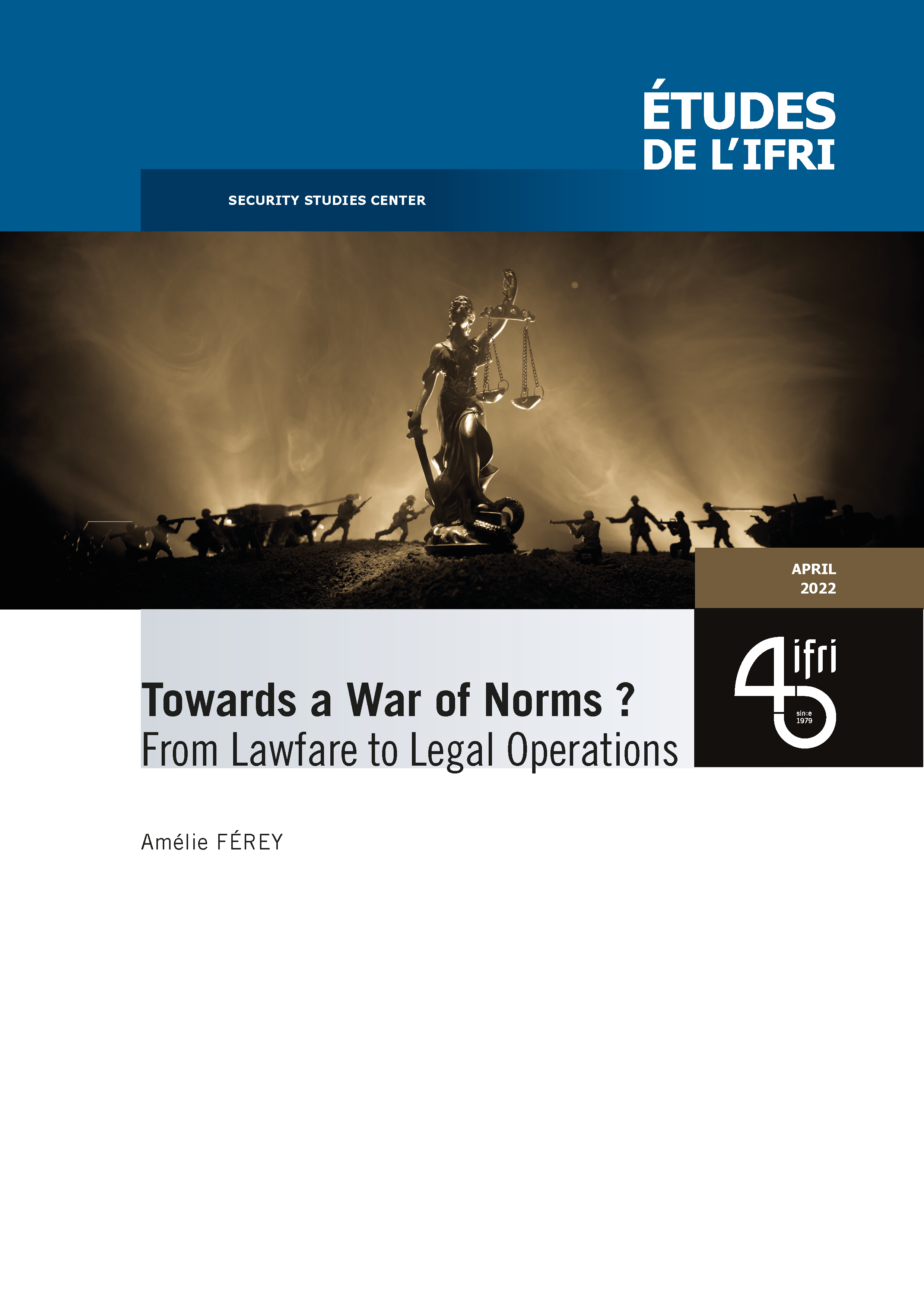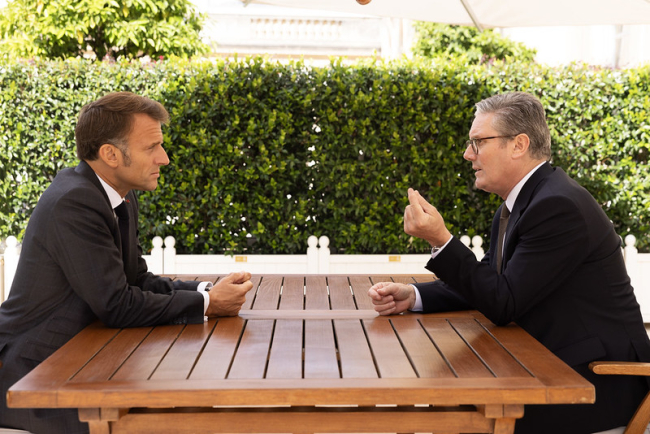Towards a War of Norms ? From Lawfare to Legal Operations

Defined as the use of law to establish, perpetuate, or change power relations in order to counter an adversary, lawfare practices reflect a reality that is inherent in international law.

Resulting from compromises between states, international law expresses political-strategic power relations that lawfare seeks to manipulate in four main ways:
- adjusting legal constraints by reinterpreting existing norms
- establishing new norms through legal lobbying as a power strategy
- mobilizing legal effects to coerce an actor through strategic litigation
- using law as a reputational weapon
Although lawfare is controversial when understood as a misuse of the rule of law, it is now being institutionalized. While states do not claim direct responsibility for acts of lawfare, the increasing use of legal vectors to achieve political-strategic ends is a notable feature of the disruptions at work in the international system. States have always used the law for strategic purposes, but recent developments—the proliferation of courts of justice, the increasing media coverage of conflicts, and the growing confusion between legality and legitimacy—tend to favor a greater instrumentalization of the law.
This content is available in French: Vers une guerre des normes ? Du lawfare aux opérations juridiques.
Download the full analysis
This page contains only a summary of our work. If you would like to have access to all the information from our research on the subject, you can download the full version in PDF format.
Towards a War of Norms ? From Lawfare to Legal Operations
Related centers and programs
Discover our other research centers and programsFind out more
Discover all our analysesSaudi Arabia’s Nuclear Temptations. Lessons Learned from Regional Instability
Saudi Arabia’s integration in the international arena and regional stability, notably through reducing its dependence on fossil energies, are crucial elements for the success of the Kingdom’s Vision 2030, the Crown Prince’s top priority. However, Mohammed bin Salman’s declarations in 2018 and 2021, indicating that “if Iran develops a nuclear bomb, we will follow suit as soon as possible”, combined with the recent strikes on key Iranian nuclear facilities, do not bode well for the future of the Kingdom, the region and the non-proliferation regime at large.
The Future of Air Superiority. Command of the Air in High Intensity Warfare
Air superiority, understood as control of the air, is a cornerstone of the Western art of warfare. It is a decisive condition, albeit not sufficient by itself, to achieve military victory, as it enables the concentration of air power toward the achievement of wider strategic objectives and protects other components from unbearable attrition levels. It is best achieved through the offensive use of air power in a joint effort to neutralize the enemy’s air power.
Europe Uncovered?
As Russia continues to threaten Europe, the Trump administration is making no secret of its desire to withdraw—at least partially—from the defense of the Old
Continent in order to focus on strategic competition with China. It is thus putting pressure on its European allies to increase their investment in the military sector. The NATO Summit in The Hague in June 2025 resulted in ambitious commitments by member states to increase their defense spending.
How should Britain and France cooperate to realise the Northwood Declaration?
During his state visit to the United Kingdom (UK) last week, Emmanuel Macron, President of France, signed a joint declaration with Sir Keir Starmer, Prime Minister, on nuclear cooperation between Britain and France. The Northwood Declaration highlights that while both countries’ nuclear arsenals remain sovereign, cooperation on nuclear deterrence can ‘contribute significantly’ to the security of the North Atlantic Treaty Organisation (NATO) and the Euro-Atlantic region.












